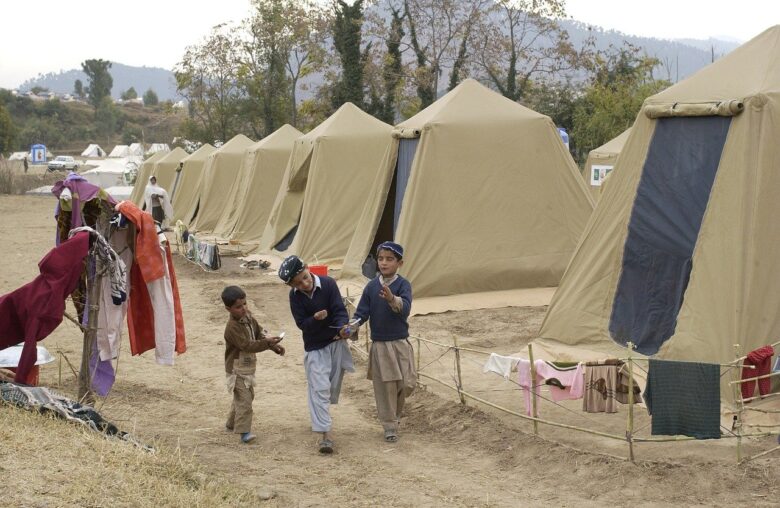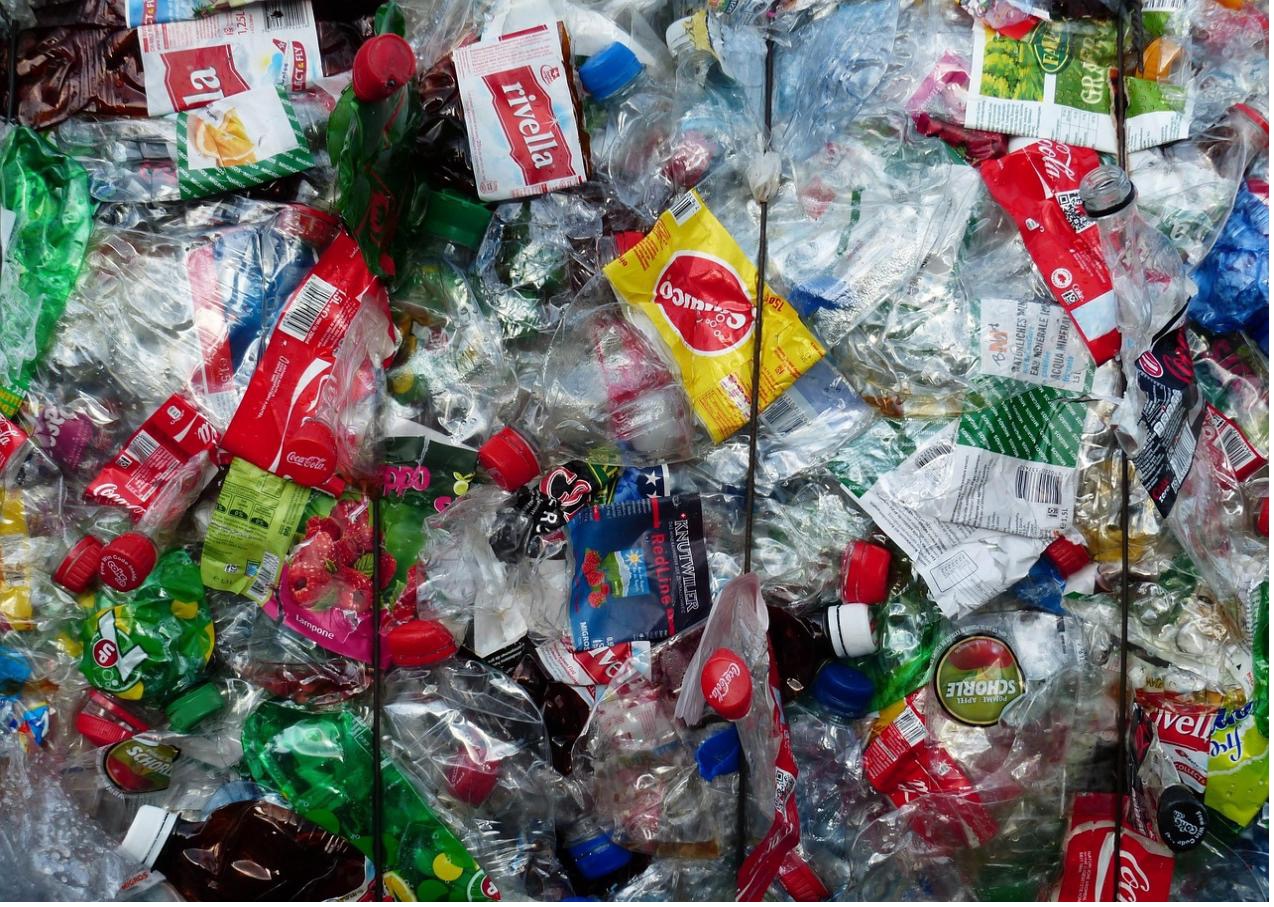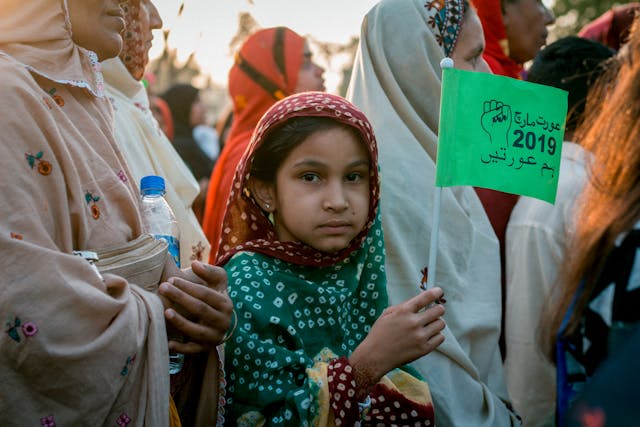The conflicts, wars and political upheavals in the Middle East and South Asia, especially after the 1970s, displaced many people from their home countries. Seeking asylum, millions poured into Pakistan, mainly from Afghanistan. The refugee crisis is a rampant reality even today. Pakistan is currently home to the second-highest population of refugees in the world, after Turkey. It houses few refugees from Iraq, Somalia, Iran and other countries, but the major refugee population comes from Afghanistan.
There are four asylum statuses of Afghan refugees: 1.4 million are PoR (Proof of Registration) cardholders, 890 thousand are ACC (Afghan Citizen Cards) holders, around half a million are unregistered asylum seekers, and other Afghan citizens who have Pakistani visas.
Although Pakistan is not a signatory to the United Nations’ international conventions regarding refugees – like the Geneva Convention of 1951– it has welcomed refugees according to international standards nonetheless.
The occupation of refugees inevitably exacts costs to Pakistan’s economy. The overall economic impact of Afghan refugees on Pakistan is reported to be negative. Even though Pakistan has gained recognition internationally for hosting millions of refugees for more than four decades, it has done so at notable economic costs. Furthermore, the intermingling of terrorism threats with the refugee crisis inevitably aggravates the issue, boosting Pakistan’s total economic costs.
It is noteworthy, the economic impacts of refugees on the host country largely depend on policy decisions and the interactions between asylum seekers and native people. Thus, the existence (or lack) of relevant policy frameworks, combined with societal acceptance (or rejection) of refugees, is critical in determining the economic benefits (or costs) the host country may avail.
Economic Effects of Refugee Asylum
Accommodating refugees is a challenging responsibility and may exact negative and positive impacts on the host country’s economy. On one side, the influx of refugees implies an increase in population, fall in average distribution of resources, and rise in the demand (and thus prices) of essential items such as food, water and transportation.
Similarly, unskilled or underskilled refugees may pull down wages by competing in the labor force. However, it is conversely argued that the “fears” of decrease in wages, declining available jobs, and diluting of quality of goods and services are “not borne out by the evidence.”
On the other side, refugees can contribute to agricultural production, labor supply and productivity, the total human capital of the economy, and various consumption and business activities that can spur aggregate spending, competition in local markets and long-term investment. Literature also discusses the contributory role refugees can play in “state-building” of the host country.
Historically, Afghan refugees have played a role in cultivating acres of land and developing some impoverished cities of Pakistan, including Peshawar. In addition, the international and humanitarian aid that comes to Pakistan’s help to assist refugees also benefits the native population by creating educational, healthcare, and job opportunities.
The refugee crisis may impress certain security concerns on the host country. This is especially true for Pakistan, which has been prey to domestic and foreign terrorism, especially since the 1970s. It is vehemently argued that along with the distressed asylum seekers, members of Al-Qaeda and Taliban also migrate through the Afghan border and “seek refuge in the tribal areas” of Pakistan.
Terrorist incidents gravely impact Pakistan’s economic profile and hinder the long-term stability and development of the country’s economy. Some argue that the intermingling of terrorism with the refugee crisis is a “poor strategy” – as mixing two different challenges may obscure the path to effective policymaking for both issues. Moreover, restricting refugees’ social and economic inclusion, in fear of facilitating terrorist networks, may prove to be counterproductive by inciting unrest and tensions between refugee and host communities.
Properly handling the refugee crisis may complement the fight against terrorism. Members of terrorist networks residing along the Durand Line may expose themselves when systematic verification of every refugee is carried out. Pakistan significantly suffers from terrorism and the refugee crisis. Addressing the latter may reduce the former’s threat, thereby making headway for better economic stability.
In short, the impacts of wide-scale refugee asylum can be both negative and positive. The net effect for Pakistan’s case, empirically calculated for 1979–2014, is indicated to be negative. This appears more to be so because of the response of Pakistan than the mere existence of refugees.
Benefits and Costs: A Matter of Policy Choice
The government and the general public of Pakistan are mainly reluctant to formally accept Afghan refugees, despite their protracted sojourn. What to say of the displaced migrants, even their children, who stepped into the world on Pakistani land, have been denied citizenship along with numerous associated perks of dignified living. Prime Minister Imran Khan in 2018 announced to grant citizenship to Afghan refugees – 75 percent of whom are born in Pakistan – but received massive backlash from the opposition parties and the public.

Citizenship rejection accompanies socio-economic exclusion of asylum-seekers. Refugees in Pakistan face difficulties getting proper healthcare, education and skills training, entering the labor market, and setting up and expanding businesses. Afghan refugees, therefore, are unable to contribute to various economic activities positively. Socio-economic inclusion of refugees in Pakistan can develop the human potential of the displaced people and drive productive economic activity from their side.
The people of Pakistan, it can be argued, are themselves devoid of many socio-economic rights. Providing educational, social and economic assistance to refugees may end up depriving the native population of these services, which is at least as much their right as the refugees’. The economic argument against wide-scale refugee asylum comes from the idea that non-natives are responsible for depleting resources and services that might otherwise be expended on native people. Such an argument can only get validation if it gets an endorsement from International Organizations like UNHCR.
Moreover, the contention assumes that the refugee crisis is a zero-sum game, where the benefit of one group is bound to accrue loss to another. Refugees exist in Pakistan in large numbers, willy-nilly. It may be so that denying them assistance – with the belief that this act will snatch away the rights of the native population – may be more costly than lending a helping hand. A report issued by the Center for Global Development demonstrates, for example, that “once a country is hosting refugees, there will be many more benefits to letting them work than to not letting them do so.”
From an economic point of view, refugees do not unilaterally consume resources. They contribute to the production and management of resources as well. For example, Afghan refugees own thousands of small shops in the streets of mini-Kabul – “the bustling refugee market in the northwestern city of Peshawar.” No doubt, these small businesses provide sustenance to thousands of families.
If refugees in Pakistan acquire citizenship – and receive the social, educational, economic and legal perks associated with being accepted in the society – they can provide for their families and actively contribute to Pakistan’s economy as “employers, employees, taxpayers, and innovators.”
The contribution of refugees to Pakistan’s economy as active economic participants, provided they are formally accepted in the socio-economic spheres, may offset the costs of supporting them and prove profitable for the host country.
Conclusion
Applying a critical economic lens to Pakistan’s refugee asylum situation raises an important question for economic experts and political analysts. Will Pakistan benefit more from being wary of refugees, refraining from providing them with citizenship? Or will it benefit more from formally accepting them in socio-economic spheres so they can actively and honorably participate in day-to-day activities?
The former approach has been tested in the past decades, with next to undesirable results. The latter approach, however, is not only harmonized with the conventions of international organizations, but also in line with the objectives of inclusive economic development.






